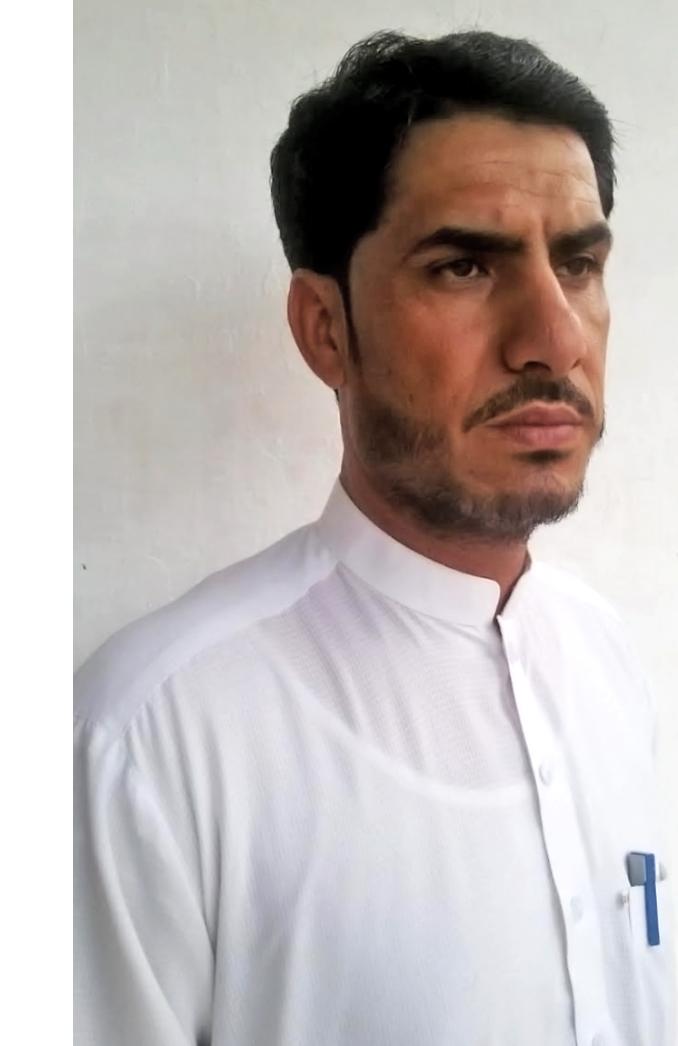PESHAWAR: Qaiser Khan remembers his tough life as a member of Tehreek-i-Taliban Pakistan (TTP) in Darra Adamkhel. He narrowly escaped death when Pakistani air force fighter jets bombarded Taliban hideouts in the Tirah valley, a remote area close to the Pakistan-Afghanistan border.
“I spent three years in the forested mountains of Tirah valley in Khyber Agency bordering Afghanistan, from 2011 to 2014,” said the 32 year old. “It was a very hard life. The fighter jets used to bombard the Tirah valley and I saw death up close.”
Khan recalls that he would cross the border into Afghanistan to buy supplies because it was not possible to reach markets in Pakistan.
“We used to spend at least three hours crossing into Afghanistan through a mountainous route and we would spend another several hours reaching Jalalabad to get the things we needed, and then come back through the same route,” he said.

Qaiser Khan
He also shared the story of how he got entangled with the Taliban.
“In Darra, the Taliban had much influence and they used to entice us that we should join their ‘jihad’ against the United States and also against Pakistan,” said Khan. “I also was attracted by their slogans since the environment in Darra Adamkhel was quite conducive to militancy and the Taliban were quite influential. They used to lure people through their interpretation of Islamic teachings.”
Khan surrendered to the security forces in December 2015, when the government announced an amnesty, and he was brought to the De-Radicalization Center (DRC) of the Frontier Corps in the Bara subdivision of Khyber district. He has spent 29 months preparing for his reintegration into society.
“At the center, we were acquainted with the definition of Jihad, which means struggle,” he said “Jihad cannot be declared by a mullah but it can be declared by the government of a Muslim country. At the center, we realized that fighting our own Muslim countrymen is not Jihad.”
On June 13, the DRC held a ceremony marking the graduation of the latest 81 trainees to complete the de-radicalization program.
Inspector General of the Frontier Corps (North) Maj. Gen. Muhammad Waseem Ashraf distributed kits containing useful items to the participants to help them get started in their return to normal lives.
Frontier Corps spokesman Major Asad said that in addition to the latest group, another 689 people have been reintegrated into society through the DRC’s Sabaoon-2 project. Sabaoon is a Pashto word for the dawn.
Asad said that the center was based on model for de-radicalization developed by Saudi Arabia in 2003 to counter extremist ideology during the second Iraq War. Pakistan began using the same model after the Swat operation in 2008.
DRC Supervisor Captain Naik Amal said that the minimum duration of the course is six months. The timescale for the reintegration of trainees into society is based on their performance.
“Each participant of the de-radicalization course is tested by a psychologist, a religious teacher, a vocational instructor and social worker every three months and then a board decides the level of the trainees and whether or not to free a trainee from the center for reintegration into society,” he added.
Amal said some trainees reintegrate much earlier than others, depending on the results of the tests and the individual’s mental state.
“Some trainees can be reintegrated in nine months; some may take more than two years,” he explained.
Job-training courses at the center include carpet making, auto mechanics, computer skills, mobile phone repair, electrics, driving and tailoring. Khan took the computing courses and said he plans to launch a computer academy in Darra Adamkhel, his hometown.


























